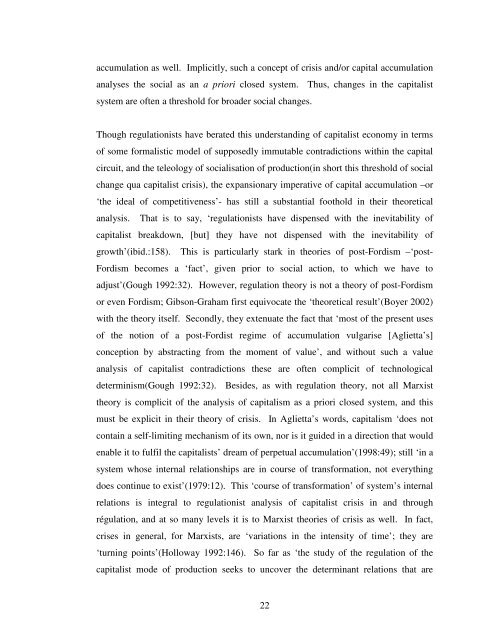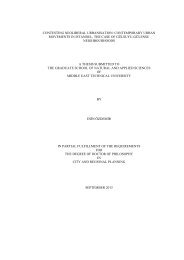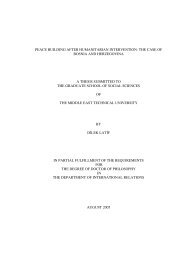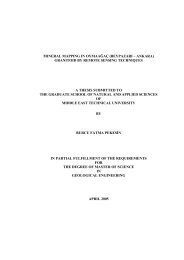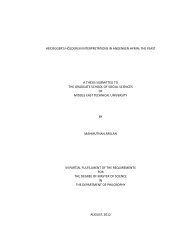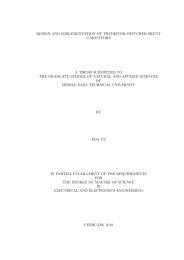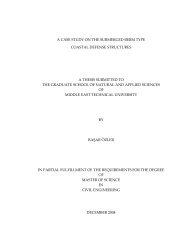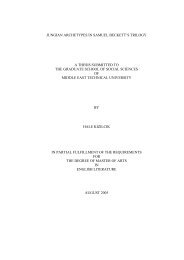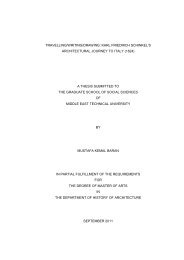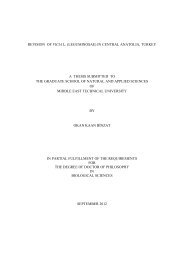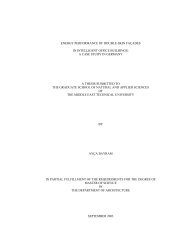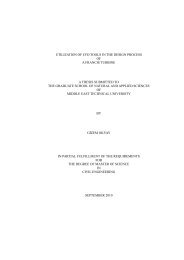View Original - Middle East Technical University
View Original - Middle East Technical University
View Original - Middle East Technical University
You also want an ePaper? Increase the reach of your titles
YUMPU automatically turns print PDFs into web optimized ePapers that Google loves.
accumulation as well. Implicitly, such a concept of crisis and/or capital accumulation<br />
analyses the social as an a priori closed system. Thus, changes in the capitalist<br />
system are often a threshold for broader social changes.<br />
Though regulationists have berated this understanding of capitalist economy in terms<br />
of some formalistic model of supposedly immutable contradictions within the capital<br />
circuit, and the teleology of socialisation of production(in short this threshold of social<br />
change qua capitalist crisis), the expansionary imperative of capital accumulation –or<br />
‘the ideal of competitiveness’- has still a substantial foothold in their theoretical<br />
analysis. That is to say, ‘regulationists have dispensed with the inevitability of<br />
capitalist breakdown, [but] they have not dispensed with the inevitability of<br />
growth’(ibid.:158). This is particularly stark in theories of post-Fordism –‘post-<br />
Fordism becomes a ‘fact’, given prior to social action, to which we have to<br />
adjust’(Gough 1992:32). However, regulation theory is not a theory of post-Fordism<br />
or even Fordism; Gibson-Graham first equivocate the ‘theoretical result’(Boyer 2002)<br />
with the theory itself. Secondly, they extenuate the fact that ‘most of the present uses<br />
of the notion of a post-Fordist regime of accumulation vulgarise [Aglietta’s]<br />
conception by abstracting from the moment of value’, and without such a value<br />
analysis of capitalist contradictions these are often complicit of technological<br />
determinism(Gough 1992:32). Besides, as with regulation theory, not all Marxist<br />
theory is complicit of the analysis of capitalism as a priori closed system, and this<br />
must be explicit in their theory of crisis. In Aglietta’s words, capitalism ‘does not<br />
contain a self-limiting mechanism of its own, nor is it guided in a direction that would<br />
enable it to fulfil the capitalists’ dream of perpetual accumulation’(1998:49); still ‘in a<br />
system whose internal relationships are in course of transformation, not everything<br />
does continue to exist’(1979:12). This ‘course of transformation’ of system’s internal<br />
relations is integral to regulationist analysis of capitalist crisis in and through<br />
régulation, and at so many levels it is to Marxist theories of crisis as well. In fact,<br />
crises in general, for Marxists, are ‘variations in the intensity of time’; they are<br />
‘turning points’(Holloway 1992:146). So far as ‘the study of the regulation of the<br />
capitalist mode of production seeks to uncover the determinant relations that are<br />
22


